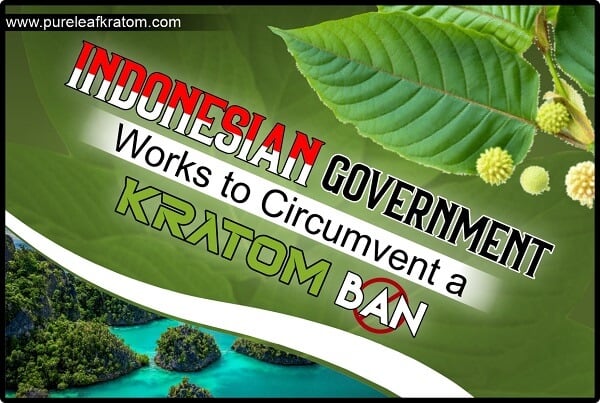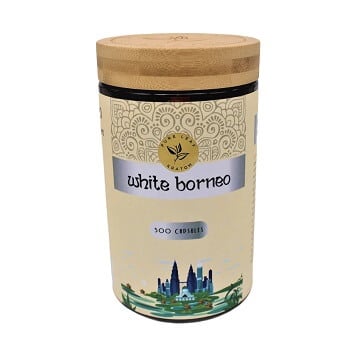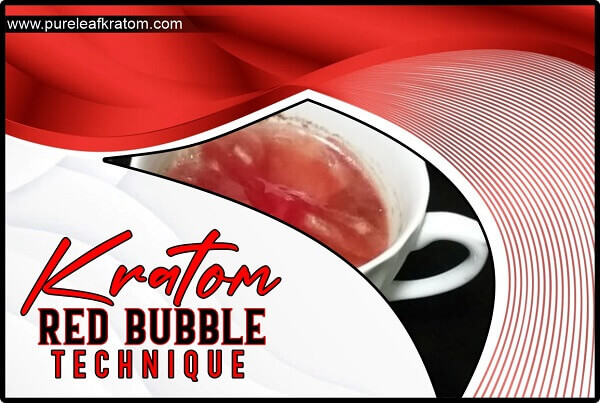- Announcements
- Knowledge
- Kratom Recipes
- Kratom Buying Guides
- Product Reviews and Comparisons
- Tips
- Kratom
- Kava
- References
- Mushrooms
- Features
- Delta

Future of Kratom As The Indonesian Government Works To Circumvent A Kratom Ban
 Asad Khan
Kratom Buying Guides | Product Reviews and Comparisons | References
Asad Khan
Kratom Buying Guides | Product Reviews and Comparisons | References
01/31/2023 12:00pm
7 minute read
Kratom grows in Southeast Asia, and we enjoy the various strains that grow in the region and are brought into America as dried leaves. These leaves are converted into various forms such as powder and liquids. There are millions of consumers in America who use this botanical as an alternative to medicines and lab-created supplements. However, what would happen if this organic substance is banned in its origin?
There have been rumors that American organizations such as the Department of Health and Human Services and DEA are pushing the Indonesian government to ban this substance, however, there are many facts that should be known before you dig deeper into the status of Kratom in America in the coming years.

Click Here To Buy Premium Quality Pureleaf Kratom White Borneo Kratom Capsules Online
What Kind Of Ban Was Being Imposed By The Indonesian Government?
The Indonesian government is set to ban Kratom in 2024, although previously, the announced date was 2022. However, this ban was pushed ahead because of the protest against the ban. It is pertinent to mention that American intervention is quite possible in pushing the ban. If you think about it, why would the Indonesian government ban a botanical that has been in use for centuries, and is bringing revenue?
The American government earlier tried to impose a ban on the entry of Kratom into the United States. The Kratom supply chain was disturbed in a way that all the smaller Ketum companies did not receive any stock. This worked over a short period, but later the Indonesian government made the needed amends, and the supply was restored.
The Ministry of Agriculture declared Mitragyna as a medicinal plant in 2022 to support the farming community. This news was welcomed by farmers who rely on Ketum production and earn from this source only. However, the chairman of Commission IV said that there would be some scientific research to back the Ketum production.
The commission also stressed the need for the government’s support to maintain the livelihood of the farmers. For this purpose, the chairman of the commission was ready to hold meetings with the health authorities as well as the Ministry of Agriculture to ensure that Kratom is promoted as a medicinal herb so that the economy can also benefit from it.
Reasons For Ban By The Indonesian Government
The reason for the ban suggestion was that many farmers shifted to growing Kratom instead of other crops because of the profit that this herb gave them. The government suspected a deficit in the local crop production and suggested the ban to counter increasing Ketum production instead of other crops. This concern alone led to the government’s approval of a ban that is going to be implemented in 2024.
The Current Legal Status Of Kratom In Indonesia
Kratom is still grown and exported from Indonesia. However, in the last five years, Kratom has faced numerous crackdowns in Indonesia. Many consumers and Kratom advocates believe that the American authorities like DEA and FDA. In 2017 the Indonesian Ministry of Health banned Kratom but set the ban date as 2022. However, the ban was postponed till 2024, so all Mitragyna users are in a state of confusion about what can happen if the ban comes into action.
In 2019, the decision of the ban was made final, although there have been various movements and efforts by the commission and Ketum farmers. This move is believed to harm the economy of the country. If Kratom farmers stop growing this substance, their livelihoods will be impacted and the whole country might suffer.
How Does The Indonesian Government Ban Impact The American Kratom Industry?
Since the HHS and DEA have reservations about the efficacy and safety of Mitragyna, there have been many ups and downs in the way it is viewed in the country. Even though the federal government approves of this substance, there are a few states that have banned this botanical.
Some cities in various states have also prohibited the use of Kratom within their jurisdiction. The local governments can follow their rules regarding this herb, but as long as the federal government does not ban Ketum, it will be imported and manufacturing units will keep supplying potent and effective products.
If the ban on Kratom is imposed in Indonesia, the supply of raw Kratom will be disrupted and that would mean that there will be lesser Mitragyna coming in from Thailand, Malaysia, and Papua New Guinea.
Indonesia is the primary producer of Mitragyna and there are so many diverse strains coming in from the country that consumers in America feel that they have an immense choice. In the case of the implementation of the ban, there would be fewer raw materials, and even the cost of the remaining strains would increase.
What Are The Biggest Risks Of Buying Kratom In America After The Ban In Indonesia?
In America, the FDA does not regulate Mitragyna products. This means that if the Indonesian ban is implemented in 2024, there will be no Indo strains available. The Bali Islands are also a part of the Indonesian territory so the strains from those islands will also be unavailable. This unavailability will lead to numerous subpar vendors selling other common strains as Bali or Indo strains.
Consumers will have to become more careful about their selection of vendors. The vendor you select must ensure that they are selling the right strain under the correct label. If you buy from unreliable vendors or suppliers, they may claim that a particular strain is from Indonesia or Bali while it would be a mix of any of the Thai or Malay varieties.
Similarly, some vendors might hoard current stock and sell it later for higher profits. This means that the products will be old and the alkaloids will be inactive. These stale products can be dangerous for use. We always recommend users buy Kratom from reliable sources because any kind of policy in the countries of origin can lead to a shortage of various Mitragyna strains in America. If the users are not careful, they might end up using subpar items.
What Is The American Kratom Association's Response To The Kratom Ban In Indonesia?
The American Kratom Association has always stepped up to defend the use of Mitragyna and has also played an integral role in stopping bans in various cities and states. The AKA has presented research to various Indonesian officials to ensure that they know about the benefits of this substance. However, the Indonesian government is not banning the substance due to its efficacy or risks. The ban is to ensure that Kratom’s status as a leading cash crop does not lead to a shortage of other crops in the country.
Meanwhile, AKA is also exploring other options like the Thai and Malay Ketum farmers and strains that may be similar to the Indonesian Mitragyna strains. There can be many blends, and mixed strains that can have results similar to the Indo strains. The Thai government is taking this ban as an opportunity to increase its output and earn bigger profits.
Is There Any Chance That This Ban Is Not Imposed?
The Indonesian government might feel that the ban would be an economic stress and since other countries are already looking forward to this ban as an economic bonus for them, the Indonesian government might cancel the ban. If the ban had been due to the risks of a botanical, it could have been irreversible. However, the ban is only because farmers prefer to grow this herb instead of other crops.
 Click Here To Buy Premium Quality Bali Gold Kratom Powder Online
Click Here To Buy Premium Quality Bali Gold Kratom Powder Online
Related Articles

What Is The Canadian Kratom Industry Like? The Regulations, Laws And Options
7 minute read
01/31/2023 12:12pm

Kratom Bans And Strict Laws: The Future Of Kratom Is Uncertain
7 minute read
01/31/2023 12:13pm

Red Bubble Kratom Technique: A Cool New Way To Consume Kratom
7 minute read
01/31/2023 11:57am
